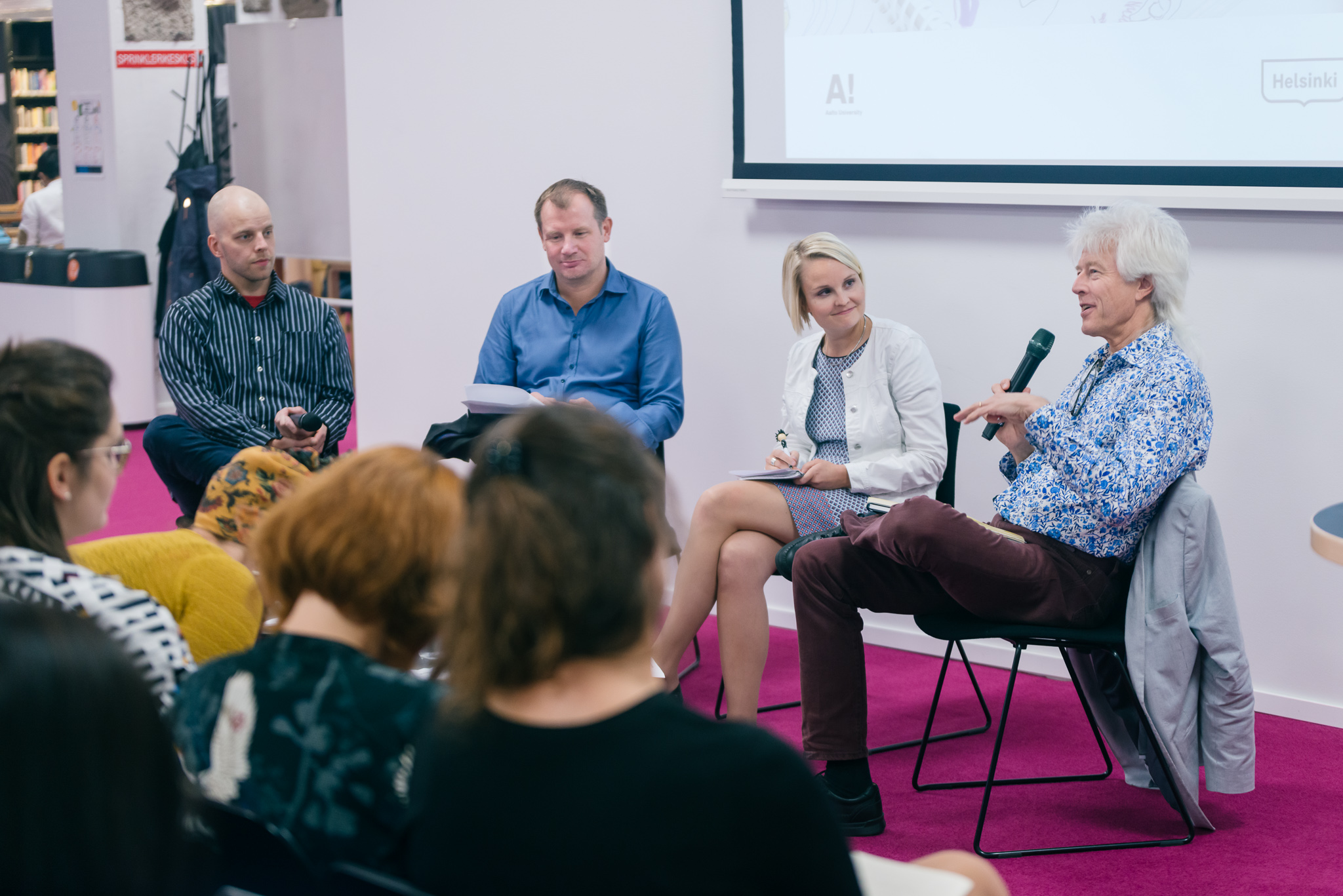Ethics Panel

Event info
Class size
Unlimited
Facilitators needed
3-4
Facilitation required
High
Equipment required
Low
Duration
1 hour
Learning outcomes
Ethical thinking, understanding one's own field from a broader perspective
Broaden students’ perspectives through difficult ethical questions.
Ethics is an issue not often discussed in engineering education, and that can lead to major problems. Often, people who develop new technology are operating in an area where laws are not up-to-date with the new possibilities. Therefore it is crucial to understand the ethical implications and possible problems raised by the new technology, even before legislation catches up to it. Students should understand that business potential is not the only meaningful aspect of new technology and that there are often ethical questions still unanswered. What should society, researchers and companies do to make sure potentially great businesses don’t fail because they’ve neglected the ethical problems in their technology? That is where the ethics panel session comes in.
During the panel session, 3-4 faculty members take roles as entrepreneurs, researchers or investors participating in a panel discussion, while one acts as the moderator. The panelists discuss ethical questions related to a topic relevant for the students, while the students ask questions and challenge the panelists’ views. The panel is usually held during one of the first sessions of the course to provide the students with a broader way of looking at the topic. The structure of the panel session is as follows:
Before the panel
The teachers come up with the topic for the panel, assign roles and work on a script. Choosing the topic is the first and one of the most important issues. The ethical question should be directly connected and relevant to the course content. For instance, gene technology is an evident source of ethical considerations for a course related to health technologies. It’s crucial that the teachers work together at this point to ensure fluent discussion and the best possible learning experience. The panel is not a real debate; the panelists know each other’s points and arguments and follow a common script. The script doesn’t need to be extremely detailed, as long as all the panelists have a joint understanding of how the discussion will proceed.
Meanwhile, the students should work on a given pre-assignment, which will help them ask better questions as they have already given some thought to the topic. The assignment can be as simple as reading an article and returning a half-page reflection paper.
During the panel
First, the moderator should introduce themselves and the topic, and why it’s important to take ethics into account in this specific context.
Next, the moderator will introduce the panelists. The panelists are introduced through the roles they have taken, not as themselves. For instance, a teacher with the role of an entrepreneur working on bioengineering will be introduced as that entrepreneur. Therefore, it might be advisable to have people the students are not very familiar with as panelists.
After short introductions, the panelists have their opening statements. Here, an entrepreneur will present what their company is doing, a researcher can tell about the technology needed or the ethical questions and issues and an investor can talk about the business potential of the technology.
At this point, the students are encouraged to ask questions. They can ask freely, or the moderator can ask their opinions on specific matters. In addition, course assistants can be asked to ask a few pre-prepared questions to break the ice.
Finally, each panelist should have a closing statement to summarize the discussion. The moderator will then have a few final words, including saying that the opinions of the panelists do not represent the views of the educational institute in question.
The roles
The panelists will be playing roles, but they do not need to be great talents in acting. It’s more than enough to be able to understand the topic and the ethical questions and represent a certain viewpoint on the matter. The most common roles are as follows:
The entrepreneur can be provocative and even a bit shady, perhaps looking for funding for an ethically questionable business idea. Or maybe they just haven’t thought the whole thing through completely, or maybe they are only looking for profits by any means necessary.
The researcher is a straightforward character, telling about the topic in a matter-of-fact way. They can say that researchers do research and that the one applying the results is the one who should be responsible.
The ethics expert can bring ethical questions and issues to light, and help the students see the problems in the entrepreneur’s idea. This character can also ponder risks related to new technology and brand image, and even take up the perspective of a potential investor.
If you’re interested in the ethics panel session but are not quite sure how to organize one, feel free to contact Elina Kähkönen or Håkan Mitts, who are happy to help with some of the practicalities.
